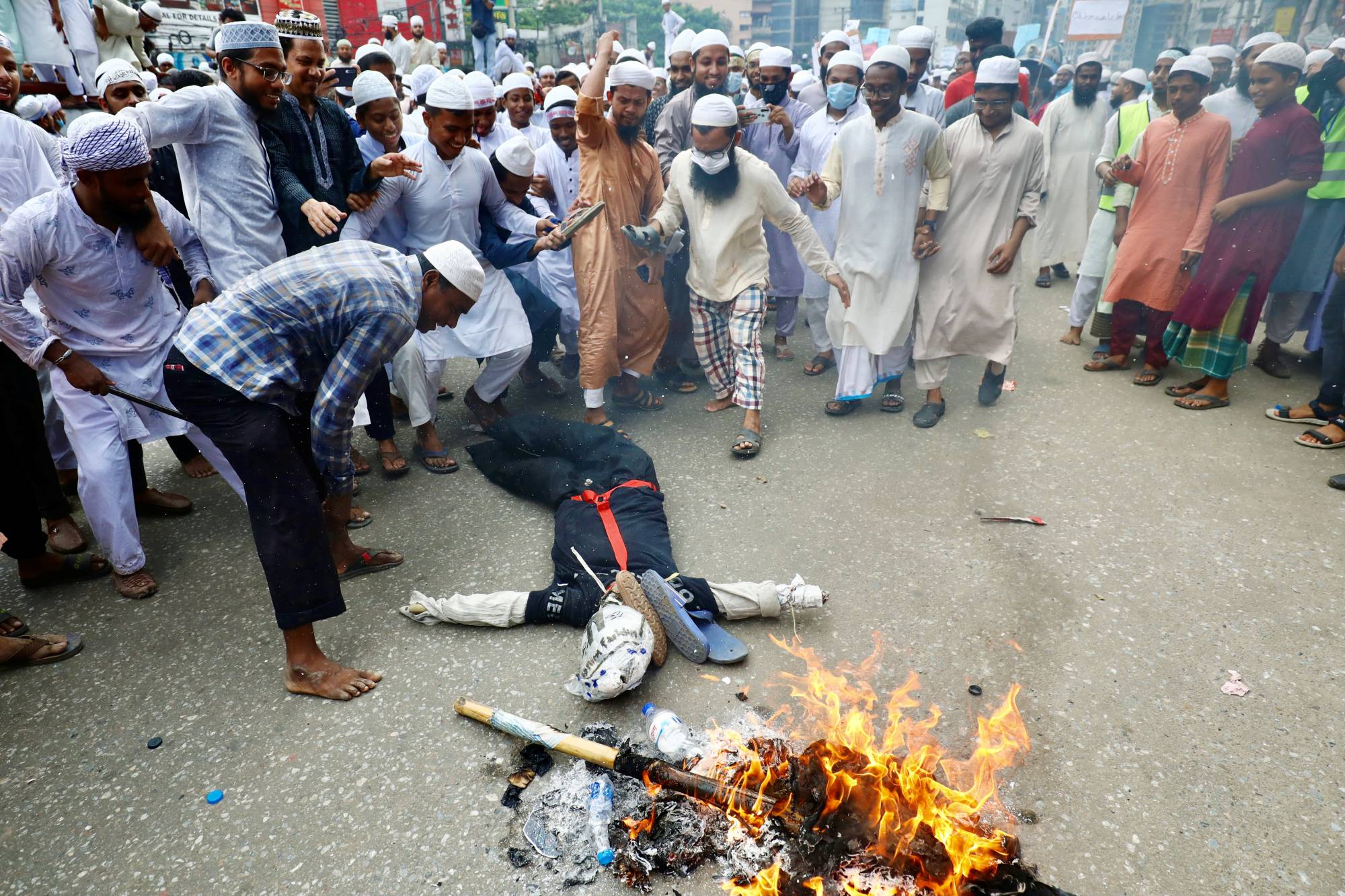In early 2017, a tussle around a statue of a woman personifying justice became a proxy for the longstanding tensions between Islamist and secular groups in Bangladesh. The sculpture, erected in front of the Supreme Court Complex in capital Dhaka, triggered a series of protests spearheaded by Hefazat-e-Islam, a hard-line Islamist group based in Chittagong. Islamist groups deem such statues to be anti-Islamic, often associating them with idol worship — a strictly forbidden practice in Islam.
Prime Minister Sheikh Hasina subsequently signaled support for the statue’s removal from the Supreme Court premises. Despite the outcry from secular groups, the authorities quietly relocated the statue to the annex building of the Supreme Court, away from the public eye. The ruling Awami League — an in-principle secular political party — is not new to the religious groups’ threats of escalating protests. In hindsight, this may look like a minor political compromise for a government in a Muslim-majority state. However, three years on, agitations over another sculpture has turned out to be Awami League’s deja vu moment. For Hasina, the ball this time has rather hit too close to home.
The government had sanctioned several projects to erect sculptures of the country’s founder Sheikh Mujibur Rahman in 2018. For Hasina, the daughter of Rahman, the emotional value of such projects far surpassed the necessity of having a statue in the Supreme Court premises. Despite the onset of the COVID-19 pandemic, the regime was busy celebrating “Mujib Year” — the centenary of the founder’s birth. Disregarding the risks related to the spread of the virus, fireworks and other celebratory gatherings continued in Dhaka.


















With your current subscription plan you can comment on stories. However, before writing your first comment, please create a display name in the Profile section of your subscriber account page.